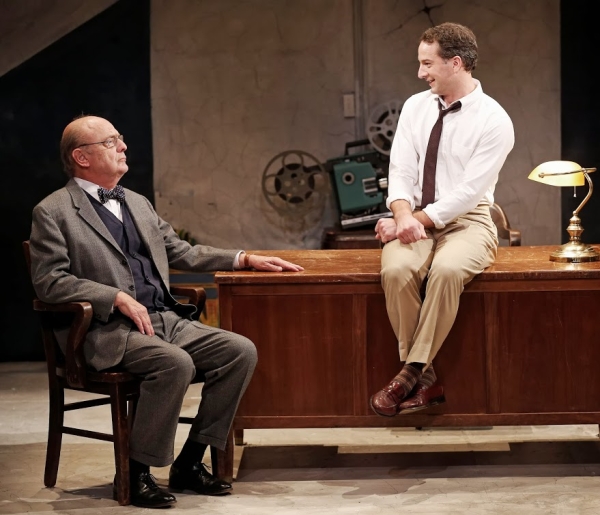The Film Society

(© Carol Rosegg)
Jon Robin Baitz's The Film Society, currently being staged by Keen Company at Theater Row's Clurman Theatre, is the kind of play whose three-dimensional characters suck you in and keep you interested in the details of their lives — in spite of the two-and-a-half-hour run time and an imperfect staging.
The Film Society revolves around a group of white teachers at a boy's school who must navigate a regime change, financial trouble, dangerous racial politics, and their own relationships in 1970s South Africa. Baitz's talent is in creating familiar individuals who behave in recognizable ways but in a setting in which everyday struggles are complicated by political and social strife. Simultaneously, Baitz’s plot is sufficiently accessible for the audience to see its characters as proxies for themselves, lending particular resonance when their essential human beliefs and needs are on the line.
It’s Baitz’s plot line that carries this heavily character-driven play, but unfortunately, several of The Film Society‘s actors do not yet have a handle on their characters, especially their accents, turning in disappointing performances with uneven dialects. Perhaps the play would have been better served by dispensing with put-on accents altogether. However, there is one standout: Euan Morton, who plays Jonathon Balton (the play’s central character), appears to be the only actor who falls completely into his role and plays him with heartbreaking believability.
Jonathan Silverstein’s neutral direction does not offer new insight into the work. Rather, the script steers most of the production. When the direction does take over, however, it’s in a heavy-handed way, making the action and movement feel forced. Silverstein’s creative team, on the other hand, comes together to ultimately give this production an extremely polished and professional feel. In particular, Steven C. Kemp’s set is at once beautiful and functional, providing the actors with simple, realistic backdrops to their everyday lives.
Baitz’s fantastic writing takes a slight turn at the end of the second act, when he resorts to having many of the characters make speeches about the hardships of life and the validity of their decisions. This speechifying is forgivable because the larger themes of human equality and right vs. wrong, which form the backdrop of the play, are difficult to condense and tie up neatly in a 140-minute run time.
Despite this, Baitz’s ability to slide universal and thought-provoking themes into a play that feels both wholly familiar and unfamiliar is one of The Film Society‘s biggest strengths. The characters as written are multifaceted — if not always acted as such — and heroism in unexpected places leave the audience with a sense that they have not only been entertained, but also edified.










